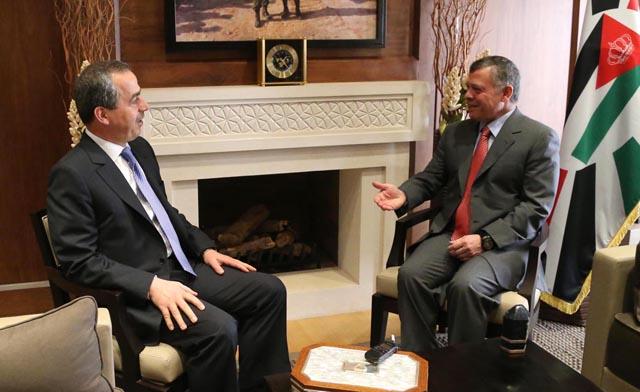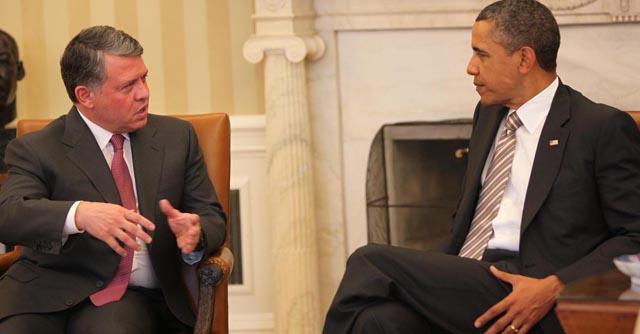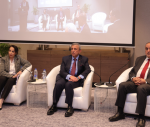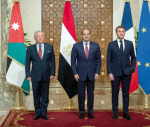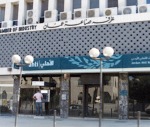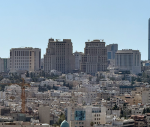You are here
‘Substitute homeland manipulators vary, so do their purposes’
By Khetam Malkawi - Feb 25,2014 - Last updated at Feb 25,2014
AMMAN — The notion of “a substitute homeland for Palestinians in Jordan” is being manipulated by certain political figures to place pressure on the establishment and decision makers to gain personal benefits, analysts and politicians agreed on Monday.
In separate interviews with The Jordan Times, they agreed that His Majesty King Abdullah’s statements on Sunday stressing that Jordan will not be a substitute homeland for Palestinians carried a “crystal clear and decisive” message to Jordanians and the international community that Jordan will not accept any solution at the expense of its interests.
However, some of them argued that international media leaks, the absence of solid information and lack of transparency on the part of concerned authorities are partly to blame for the spread of rumours that threaten national unity.
Media, political and grass-roots circles have recently engaged in a debate over the fate of Palestinian refugees, amid rumours that a US peace plan in the making will ignore the right of return for around five million Palestinians whose families were forced out of Palestine in the aftermath of the 1948 Arab-Israeli war, which ended in the creation of Israel. Jordan is the largest host of Palestinian refugees, most of whom have acquired citizenship.
Critics, including persons who formerly assumed high ranking positions in the state, have claimed that the US and Israel will inevitably impose their will on Jordan, sounding alarm that national interests are on the line.
King Abdullah on Sunday reasserted that Jordan is Jordan and Palestine is Palestine, stressing that talk about Jordan “a substitute homeland” for Palestinians is baseless.
At a meeting with senior government officials and leading lawmakers, the King reassured Jordanians, that the substitute homeland notion “exists only in the minds of few people who want to create some sort of confusion”, repeating this every year.
He threatened to disclose the names of these individuals if they insist on sowing the seeds of sedition in Jordanian society.
‘Manipulation and extortion’
“Although the idea of the substitute homeland does exist in the minds of Israelis, it is clear that Jordan would never accept such a solution for the Palestinian cause,” Oraib Rantawi, a political analyst said on Monday.
He said there are powers that want to sustain the benefits they have gained at a certain time and others who want to remind the state that “they are there”.
“They use the substitute homeland rumours to place pressure, particularly on the Palace, to make personal gains,” Rantawi said.
Another group is manipulating the sensitive political situation because they are opposing the reform process in the country and use these talks to hinder reform, according to the analyst, who writes a column for Ad Dustour daily and runs a leading studies centre.
Fahed Kheitan, political analyst and Al Ghad daily columnist agreed, saying that the talk of substitute homeland dates back many years, so much so that it has become “part of a heritage used by some groups whenever there is a plan for reform”.
King Abdullah’s policy was “clear” since his accession to the Throne, but there is a generation of veteran politicians who are still holding this idea and raising it whenever they need it, according to the commentator.
‘They are scaring
the people’
However, for Jawad Anani, former head of the Royal Court and deputy prime minister, former politicians are not to be blamed alone as they are joined by several interest groups that use the talk about the alternative country “whenever the need arises and for different purposes”.
“It is being used by some powers to say they are not happy in how things are going around, and unfortunately, they have succeeded in scaring the people,” Anani, a several-time minister and senator, told The Jordan Times, charging that there is a group with foreign connections and a political agenda that wants to “create chaos in the country”.
The third group of people, according to Anani, is the “unsuspecting people who lack knowledge and are unhappy with the economic situation and they just parrot what they hear”.
For Senator Muhannad Azzeh, the culprits are “all political powers that fail in pushing their agendas and so they use this taboo to spread fear”.
According to Azzeh, “over the past few weeks, with even a slight modification proposed to a piece of legislation such as the Passports Law, some have charged that the change is meant to pave the way for the alternative homeland plan”.
Flood of leaks vs. lack of transparency
Meanwhile, interviewees blamed Jordanian officials who stood silent in the face of international media reports and leaks suggesting that Jordan is the underdog in the entire Mideast peace process.
“Some politicians, who are aware of these rumours and the agenda behind it, should have stood up to silence these talks,” Azzeh said, a call that was also echoed by Anani.
“People who are familiar with developments in the issue should have stepped forward and responded,” Anani noted.
Absence of information, according to Tareq Momani, president of the Jordan Press Association, has confused the local media.
“The government should be transparent with the media, so that journalists would not ride the wave and start tailoring analyses and reports based on false or leaked information,” Momani told The Jordan Times, adding that the absence of accurate information does not serve national interests at all.
Opposition still wary
For Muslim Brotherhood, the largest opposition group, the rumours about the alternative homeland are facts as far as Israel is concerned.
Israel’s demand to be recognised as a Jewish state as part of the envisioned US-brokered peace deal is an indication of this plan.
“I believe that neither the King nor any Jordanian or Palestinian would accept this solution, but other sides are working on it,” Hamzah Mansour, the Islamic Action Front secretary general, said.
Mansour, who admitted that all his information is based on leaks, insisted that “the leaks are true to a certain extent”.
Rantawi, however, accused the Brotherhood of using the confusion over US Secretary of State John Kerry’s planned framework deal “to go back to the street and regain their lost popularity” after the failure of their peers in Egypt.
“I am also wary of Kerry’s plan and the leaks about his mission, but this is not an excuse to create chaos in the country,” he said.
Can rumour-mongers
be sued?
For legal expert Omar Jazi, the rumours related to the substitute homeland are threatening the national unity of Jordan and any such an issue is under the jurisdiction of the State Security Court (SSC).
He noted that the “crisis” over the past few weeks was “premeditated by some people and this is criminalised by the Penal Code”.
He explained that the SSC attorney general can launch investigations without even receiving a complaint, whether those involved are politicians or journalists.
Momani said, however, that lack of accurate information is no excuse for journalists to be part of the wave of harmful rumours and those involved should be held accountable.
Related Articles
His Majesty King Abdullah has sent a strong foreign policy message to world and regional players ahead of the Kuwait-hosted Arab summit, politicians and analysts said Sunday.
There is nothing called the “substitute land” on Jordan’s map and the right of return will be an individual decision for every Jordanian of Palestinian origin Senate President Abdur-Ra’uf S. Rawabdeh said Friday.
Jordan will reject any proposal to end the Palestinian-Israeli conflict that does not take into account the Kingdom’s national interests, politicians and analysts agreed.

Opinion
Apr 07, 2025
Apr 07, 2025
Apr 07, 2025
Apr 06, 2025
- Popular
- Rated
- Commented
Apr 07, 2025
Apr 07, 2025
Apr 07, 2025
Newsletter
Get top stories and blog posts emailed to you each day.


